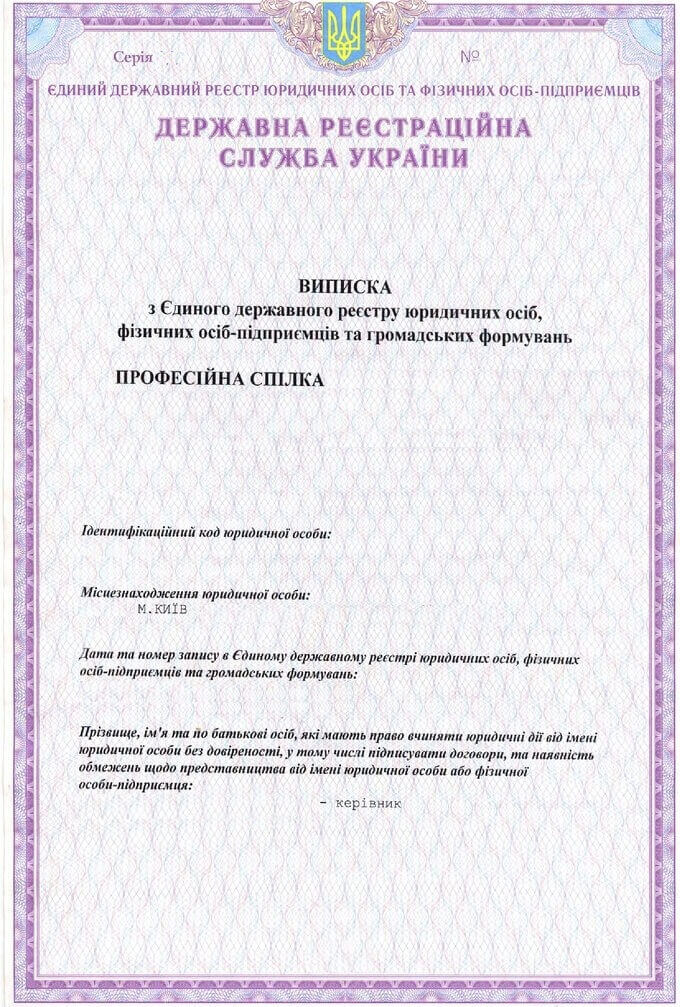Registration of labor union as a legal entity: peculiarities of the procedure and types of labor unions

The current Trade Union Law gives green light to setting up and running trade unions. This means that state authorities shall not refuse to register a trade union, and they are entitled only to comment on its constituent documents.
Everyone shall be free from discrimination of any kind based on union membership or non-membership. No one shall be forced to join a trade union and no employer shall prohibit employees from joining a trade union. Moreover, staff members are not required to secure the employer’s approval for setting up a trade union.
Thus, all employed persons who care about their labour rights to be respected by employers have all the necessary means to establish trade unions recognized by law.
In this article we will reveal the potential pitfalls and peculiarities of the very process of setting up a trade union.
Our service: Registration of a trade union
Setting up a trade union
The union shall be deemed created and acquire the status of a legal entity as of the date the founders decide to set it up and approve its charter.
As it was already mentioned above, state authorities shall not refuse to register a trade union. But the competent state body (State Registrar) can process the documents submitted for its registration within a month.
If there are any comments to the submitted documents, the state registrar shall describe the points of criticism in an official letter and send it to the registered office address specified by the trade union.
Once all the issues are removed and the documents are submitted again, the State Registrar will process them again within one month. Despite the fact that the State Registrar shall thoroughly explain its comments, some issues can be missed during the first documents review or the founders may misunderstand some of them and accordingly fail to properly amend the documents. Therefore, it cannot be ruled out that in such case the documents are to be amended and submitted for the third time. And each time the State Registrar has one month to process the documents.
At the same time, we should mention once again that the trade union shall be deemed created and acquire the status of a legal entity as of the date the founders sign (approve) its charter. But while it passes all the stages of state registration, it cannot be assigned with EDRPOU code and, of course, you will have no documents confirming the establishment of the trade union.
Consequently, the union will not be able to fully defend the interests of its members.
In order to avoid the repeated submission of documents, it is necessary to thoroughly learn all the requirements related to setting up a trade union and executing documents for its registration, or contact qualified lawyers for legal support and assistance.
Related article: Our Lawyers Assisted In Bringing the Trade Union’s Charter In Line With the Current Law and Including It In the Register of Non-Profit Organizations
Types of Trade Union
According to the law of Ukraine, there are six types of trade unions: primary, local, provincial, regional, republican and all-Ukrainian.
The primary trade union is a member’s association of trade union who work at one enterprise, institution or organization.
The local trade union is a trade union that unites at least two primary trade unions operating at different enterprises within the same administrative-territorial unit: city or city area, district, etc.
Accordingly, the provincial trade unions are the associations that have their own organizations in most administrative-territorial units within one region.
Regional trade unions are the associations that have their own organizations in most administrative-territorial units within two or more regions.
The status of republican trade unions can be obtained only by unions operating in the Autonomous Republic of Crimea (the ARC) that have the same features as the all-Ukrainian trade unions.
And the status of the all-Ukrainian trade union, unlike other social organizations, is determined by one of two criteria:
- Presence of its organizations in the majority of administrative-territorial units of Ukraine;
- Presence of its organizations in the most administrative-territorial units of Ukraine, where the enterprises of a certain industry are located.
This means that if the majority of agricultural enterprises, for example, are located in the southern regions of Ukraine, they are required to have their own organizations in most regions of Ukraine to create an all-Ukrainian trade union. They just need to have their own organizations in the majority of agrarian regions.
Each type of trade union has certain peculiarities of creating and including it into the Register. It is important to consider them to successfully set up and run such a trade union.
If you have decided to create a trade union and want to legalise it on the first try, it would be a good idea to immediately contact specialists for support and assistance. Otherwise, you are running a chance of wasting several months.
Our clients











